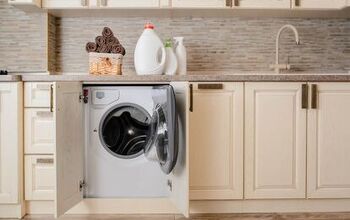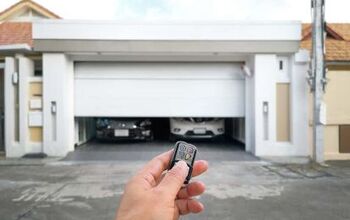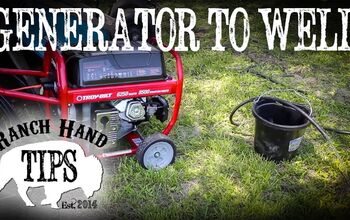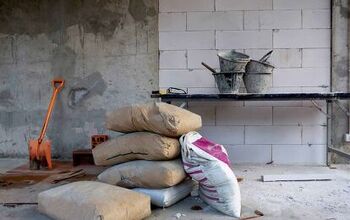Why Does My Propane Tank Make Noise? (Find Out Now!)

Propane is a very common energy source that has an array of uses. Noises are a common complaint regarding the useful gas, but there are solutions at hand. While propane is a relatively safe gas, you should take precautions in case of unsafe conditions.
It’s not normal for a propane tank to make noise. The noise could be a leak (hissing), an imbalance of air and gas (knocking), or being overfilled (humming/gurgling). If your propane tank is making noise, servicing the LPG container is necessary to prevent injury.
Hissing, knocking, and humming are common concerns and indicate a problem with your propane tank. If you hear noises coming from the canister, be prepared to call your service line. Call 911 in cases of exposure or fire.
Do You Need Water or Fuel Tank Installation or Replacement?
Get free, zero-commitment quotes from pro contractors near you.

Propane Properties
Propane is self-cleaning, versatile, and safe (when you store it correctly). It’s non-toxic and cost-effective. However, carbon monoxide detectors are still necessary to protect yourself and others in case of a leak.
Unlike natural gas, propane can be liquified into compressed canisters and stored out of direct sunlight. You can store propane as a liquid or vapor. The vapor is far less effective than liquid as the gas is 270 times less energy efficient.
Propane can be dangerous under certain conditions. It is extremely cold, so a damaged canister and direct contact with skin can cause frostbite, itchiness, or death. Safety is very important, so be sure to react to any noises with seriousness and caution.
Various safety codes for propane storage, transportation, and otherwise are in effect. The National Fire Protection Association has two primary codes known as NFPA 54 and NFPA 58. The codes provide proper conduct for safety inspections, which are essential and required to prevent injury.
Propane naturally does not have an odor. Ethyl Mercaptan is added to produce a rotten egg smell. This odor alerts people to a leak, therefore making it easier to detect and report the issue.
Is Your Propane Tank Making Noise?
Humming, hissing, knocking each has its own solutions and risks/problems. However, hissing during the initial time the line is turned on is likely no cause for alarm.
In most cases of a propane tank making unusual sounds, the answer is almost always to talk to a professional. Unless you yourself are a pro, the dangerous nature of any flammable gas could pose many risks.
Smelling the gas is often the first sign of a problem.
Propane Tank Is Hissing
If the hissing continues past the first few seconds of opening the tank, there is a leak. Turn off the valve as well as any appliances the propane tank powers. If you are still smelling the propane gas once the valve is shut, there’s likely damage to the exterior or to the valves themself.
Another potential cause is the bleeder valve being open. This valve is used by the provider to detect the fuel levels and could be open.
Solution: Check the relief valve cover. If the safety cover pops off, the valve is open. Furthermore, if there’s a leak, turn off the gas.
If the bleeder valve is the cause of the hissing sound, a simple fix is to turn it clockwise. Remove any debris in case it’s the culprit.
In the event that you filled the propane tank in hot weather, spray it down with a hose. It’s possible that pressure has built up, and the safety relief valve is now open. Call your propane provider and emergency services if the leak continues despite attempts to fix the leak.
Propane Tank Is Knocking
Knocking generally requires a call to your propane provider so they can help you troubleshoot. Failing that, they will come to you. The cause is often an uneven mixture of air and the liquid propane (LPG).
Solution: Use the relief valve to let off some extra gas if a pro advises you to do so. Do NOT look into the valve opening or tap it with anything. Be sure to contact your propane provider first before attempting this.
Propane Tank Is Humming
Humming could indicate an overfilled canister. Once again, it would be your service provider that would advise you. It could be that you only have to leech off some extra gas in order to cease the noise.
Check the flames. Blue flames are normal. White or yellow flames signal a problem with the air and gas balance.
Call for advice on how to let off excess gas safely.
Solution: There are two valves in and on a propane tank: an internal relief valve and an external relief valve. When the relief valve needs replacement, only a professional should do so.
Propane Tank Is Squealing
Squealing is a less common sound that indicates a regulator problem. A replacement is necessary to solve the issue. A professional needs to inspect the canister due to potential safety concerns.
Take Your Propane Tank To A Pro
Troubleshoot with knowledgeable help from someone trained or otherwise an expert on repair. This can be a coworker or specialist working for a propane company. When in doubt, ask for help.
Prevention is key: Keep your tank out of direct sunlight and have a professional inspect it regularly.
Is Propane Dangerous?
Propane alone is odorless. For safety reasons, a rotten egg smell is present to alert people of a leak. Smelling propane means immediate danger, and you should turn off the tank promptly.
Although LPG (liquid propane gas) is considered safe in most instances, caution is still necessary. A blue flame with a yellow tip shows working order. A white or yellow flame is a signal of trouble with the canister.
It goes without saying that LPG should never be in direct contact with an open flame. Be sure to read any instructions before working with this gas.
The main reason behind propane explosions is direct sunlight. The tank must remain upright with valves closed when not in use. When storing propane tanks, they should be in a light-traffic area to avoid accidental impacts.
Liquified gasses under pressure can be very dangerous. Exposure to air can be explosive, so exercise extreme caution when using propane.
If you smell propane, leave the area and turn off the propane valve once outside. Be sure to call the propane provider to ensure the area is safe and any leaks are fixed.
Proper Storage Of Propane
You should always store propane in LPG metal storage canisters. These containers are usually about 20 times more puncture-resistant compared to gasoline, methanol, or ethanol. Some of these containers are underground in large tanks or in the standard cylinder.
You should never store any canister containing propane inside or in the shade. The risk of sun exposure includes fire, explosion, and/or damage to the surrounding area.
Tanks that store propane undergo stringent testing to ensure they are up to code. Garages can be safely heated with propane and are economical to do so in most cases. However, due to the flammable nature of propane, be sure to exercise caution.
Cost Comparison Of Propane
In household uses, dryers and other indoor uses can save the homeowner money. When compared to electricity, propane is cheaper. The owner of a propane dryer can save about $.25 per load.
Heating a home and using a propane water heater is very efficient and cost-effective in this area.
Electricity is the most common form of energy in household use. Propane is more commonly the primary use of a water heater. Unfortunately, the price of propane has increased by 30% recently due to rising crude oil costs.
Propane, on average, costs about $2.41 a gallon. Natural gas costs greatly vary from state to state. The average cost ranges from $6.50/gallon to $21/gallon.
When compared to natural gas, propane is less expensive as of 2021. They are both clean-burning and not very harmful to the planet. However, propane comes with a lower carbon footprint than its competitor.
All three of the mentioned energy sources have their strengths and weaknesses. Research your options to see which options best suit your needs.
Do You Need Water or Fuel Tank Installation or Replacement?
Get free, zero-commitment quotes from pro contractors near you.

Related Questions
Why does propane get cold?
Propane does not freeze in winter. It takes laboratory situations to get to boiling or freezing, -42°F and -306°F respectively. A tank of liquid propane will get cold during or after use due to the heat being drawn from the tank walls.When the vapor withdrawal is at a greater rate than the liquid conversion to gas, the tank may frost up.
Why does propane burn blue?
A blue flame is a sign of a working tank. Propane itself is colorless, and the combustion requires a certain level of oxygen. Complete combustion has flames at about 3500ºF, providing the color blue.
Can you convert natural gas to propane?
Propane is one of nature’s most versatile energy sources. You can use it for cooking, recreational vehicles, and operating various appliances. Grilling is the first to come to mind when discussing outdoor cooking. Charcoal is not as efficient as propane and you can’t store natural gas as a liquid. Propane has to be delivered when stored but must be continuously monitored. While Weber may not support or condone conversion from natural gas to propane, it is possible. To do so safely, contact a professional. Conversions such as this can be considerably dangerous, so it’s best left to the pros.

Stacy Randall is a wife, mother, and freelance writer from NOLA that has always had a love for DIY projects, home organization, and making spaces beautiful. Together with her husband, she has been spending the last several years lovingly renovating her grandparent's former home, making it their own and learning a lot about life along the way.
More by Stacy Randall



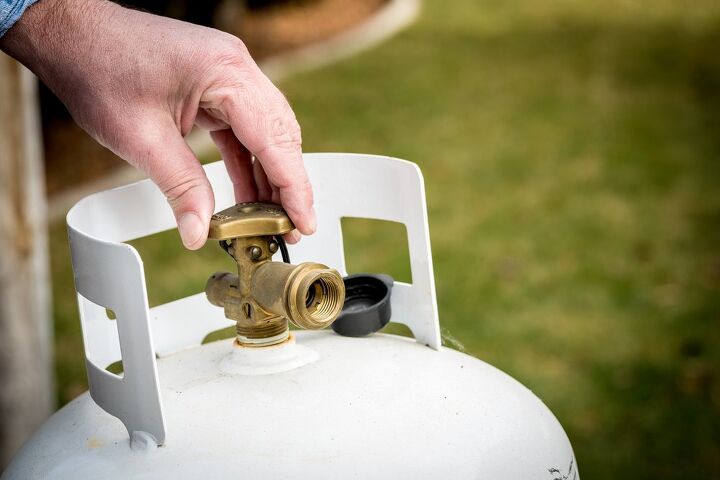






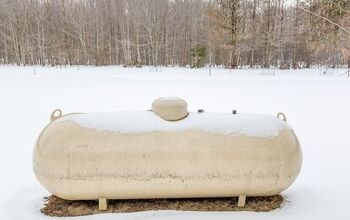
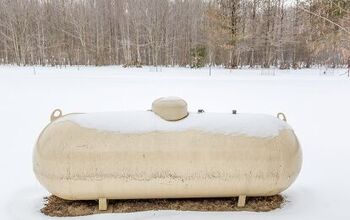
![How Much Weight Can a 4×4 Support Horizontally? [It Depends!]](https://cdn-fastly.upgradedhome.com/media/2023/07/31/9070333/how-much-weight-can-a-44-support-horizontally-it-depends.jpg?size=350x220)

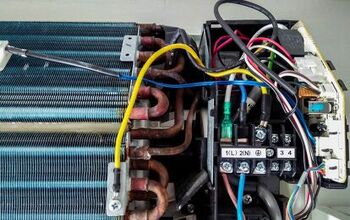




![Cost To Drill A Well [Pricing Per Foot & Cost By State]](https://cdn-fastly.upgradedhome.com/media/2023/07/31/9074980/cost-to-drill-a-well-pricing-per-foot-cost-by-state.jpg?size=350x220)
